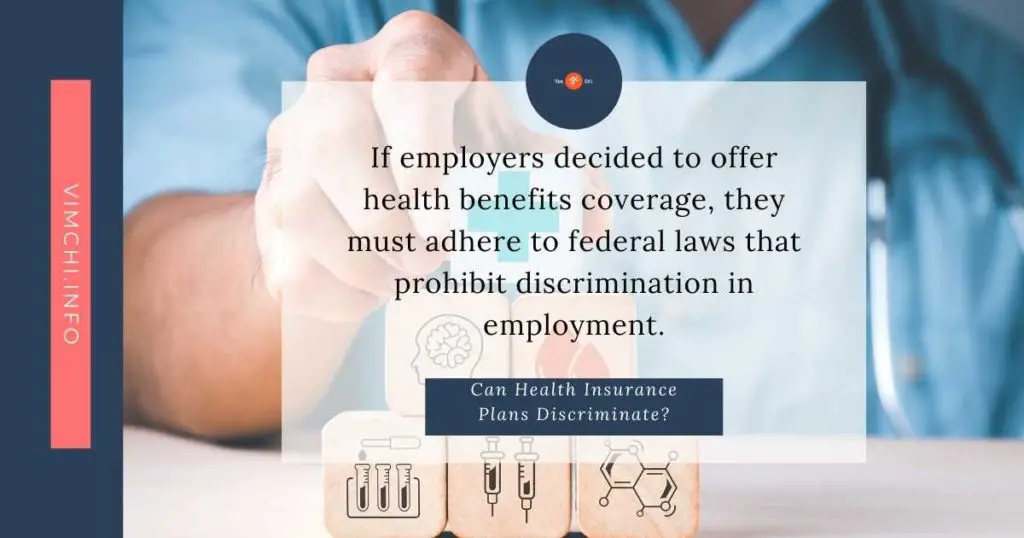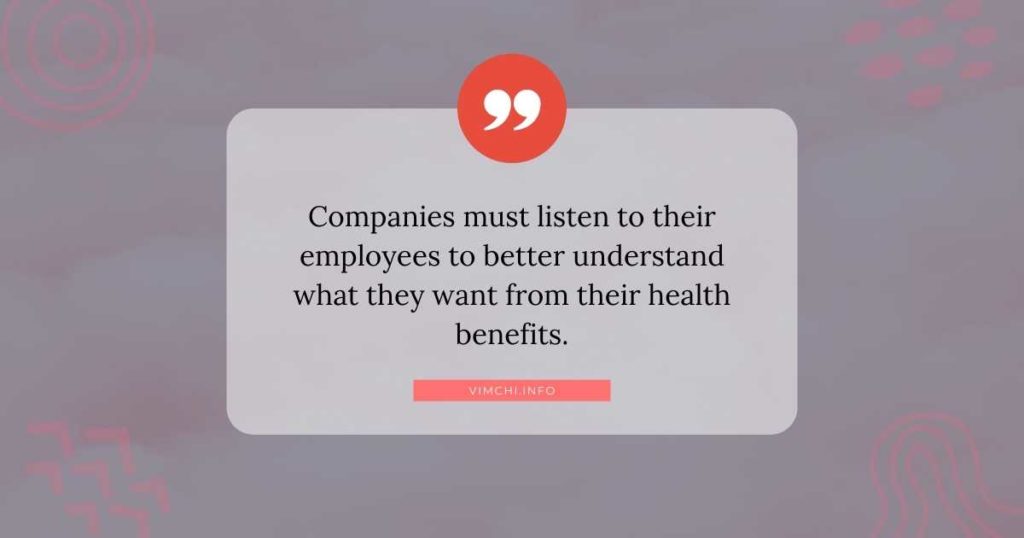
Are employers required to offer health benefits to their employees? Can health insurance plans discriminate? Let’s find out here.
Can Health Insurance Plans Discriminate?
If employers decided to offer health benefits coverage, they must adhere to federal laws that prohibit discrimination in employment.
Just like other areas of employment, the coverage benefits must not be based on the employees’ race, age, religion, or disability.
For instance, employers can’t provide health benefits to men but not to women or Caucasian but not to Asian employees.
Furthermore, employers can’t provide lesser coverage to older workers or employees who may become pregnant. They also must not treat miscarriage, post-childbirth recovery, and pregnancy-related disabilities differently from other medical conditions.
However, employers can treat their employees differently. But they must not violate federal rules that discriminate and prefer highly compensated employees. These laws also apply to self-insured health plans that enable employees to pay their pre-tax basis or premiums.
See Also: How to Choose the Best Health Insurance?
Laws About Benefit Eligibility
The federal rules are different. They vary on the organization’s size.
For instance, large employers need to adhere to the Affordable Care Act’s employer mandate. They must also offer insurance to all employees working full-time.
But employers with fewer than 50 full-time employees don’t need to follow the rules. They’re also not required to provide the same benefits to everyone.
See Also: Which Health Insurance Policy is Best?
How Employers Can Restrict Benefits to Different Workers?
Employers who wish to restrict benefit eligibility to some employees must base their decisions on employment-based classifications.
The employers can’t make up their own rules. Rather, they have to follow what the IRS has established.
The distinctions must be related to the employee’s status with the organization.
For instance, the employer must restrict eligibility based on part-time or full-time status. Employers can also restrict benefits based on the employee’s job title, seniority, or where the employee works.
Is Health Insurance a Deciding Factor in Whether to Accept the Job or Not?

Employer-based health coverage is vital for recruiting. It’s also more important for retention.
Most US adults said that health coverage is a vital factor when deciding to stay at their current job or not. Furthermore, 71% of employees are satisfied with their coverage. However, the high costs of benefits worry them.
Employer-based insurance is vital to the US health care system. It covers over 150 million Americans. It also influences innovation that assists in improving the overall health care marketplace.
The coverage helps employees to stay healthy and productive.
Large organizations that want to retain their best employees would want to provide high-quality care. With health benefits, employee engagement is higher.
But companies must listen to their employees to better understand what they want from their health benefits. Instead of looking at claims numbers, employers must talk to their employees to find out what is working for them and what is not.
Employers should also find ways to ensure that their employees engage in wellness challenges and track their progress online.
Some employers are now providing their workers with walking trails. These would encourage them to move more during lunch or after work.
Even though employees can use their sick days. But if employers want to improve the health of their employees, they need to give them access to preventative care services, such as vaccination and primary care visits.
Remember that healthy employees show up to work while unhealthy ones don’t.
It’s also vital to spend more on things that make workers healthier, instead of doing things that don’t. Experts recommend incorporating value-based design into a health savings account. Unfortunately, HSA requires high-deductible health plans. Many workers consider it as nuanced.
See Also: Health Insurance Vs Savings Account
Work Culture
But just because a job offers lucrative pay and outstanding health coverage, it should not be the only deciding factor. Keep in mind that accepting just any job even if it doesn’t fit your personality may harm your career in the long run.
Accepting a job must not be based on the salary being offered. Instead, you need to evaluate the work culture of the organization.
It has to be aligned with your personality. Keep in mind that you’ll spend most of your hours in the space with the same people every day.
Thus, it’s vital that you like the overall environment. The culture must align with your principles, ideals, and temperament.
Thus, it’s best to work for a company that contributes to your image positively.
Furthermore, the company should not lead you to a dead end. It means that employers must promote employees’ growth and development by offering them opportunities to build on their skills and knowledge.
You should not opt for a company that doesn’t have plans for you, in addition to the usual performance targets.
Make sure that the company allows you to expand your knowledge, skillset, and network so you can take on bigger roles in the future.
Moreover, the company must also offer opportunities that can fulfill your financial plans. It means that you must find a stable company. In that way, you don’t need to worry about waking up one day without a job.
If the company is unstable, you may receive a notice of a salary delay because the organization is operating at a loss.
The company should also comply with existing laws in providing mandatory employee benefits.
You should work with a company that offers a sufficient salary and provide satisfactory benefits that match your career and financial plan.
In that case, you need to have a financial plan first before you find a job. Not having a plan is just the same as putting yourself in a situation that could hamper your future.
Don’t pick a job that limits your opportunities to grow your career. Keep in mind that being employed is a way for you to build a more comfortable future.
When you have a more holistic approach, it could provide a huge difference in meeting your goals and for your family.
See Also: What Does Most Health Insurance Cover?
Summary
Can health insurance plans discriminate? Employers aren’t required by law to provide health insurance. However, if they offer benefits, they need to meet the guidance of federal laws. Although they can offer different benefits, they must not discriminate based on race, religion, among other things.
Do you know how to get health insurance? Here are some tips.
Speak Now ... Or Forever Hold Your Peace